What a fantastic start! The first day of the Data Innovation Summit is officially over, and Kistamässan was overflowing with energy! At every turn, attendees seized the opportunity to exchange knowledge and build meaningful connections.
Whether you’re drawn to data, analytics, or artificial intelligence (AI), this summit provides a platform that caters to all!
The summit’s first day was truly a blast. Whether you joined us in person or not, come together with us as we relive the highlights of today.
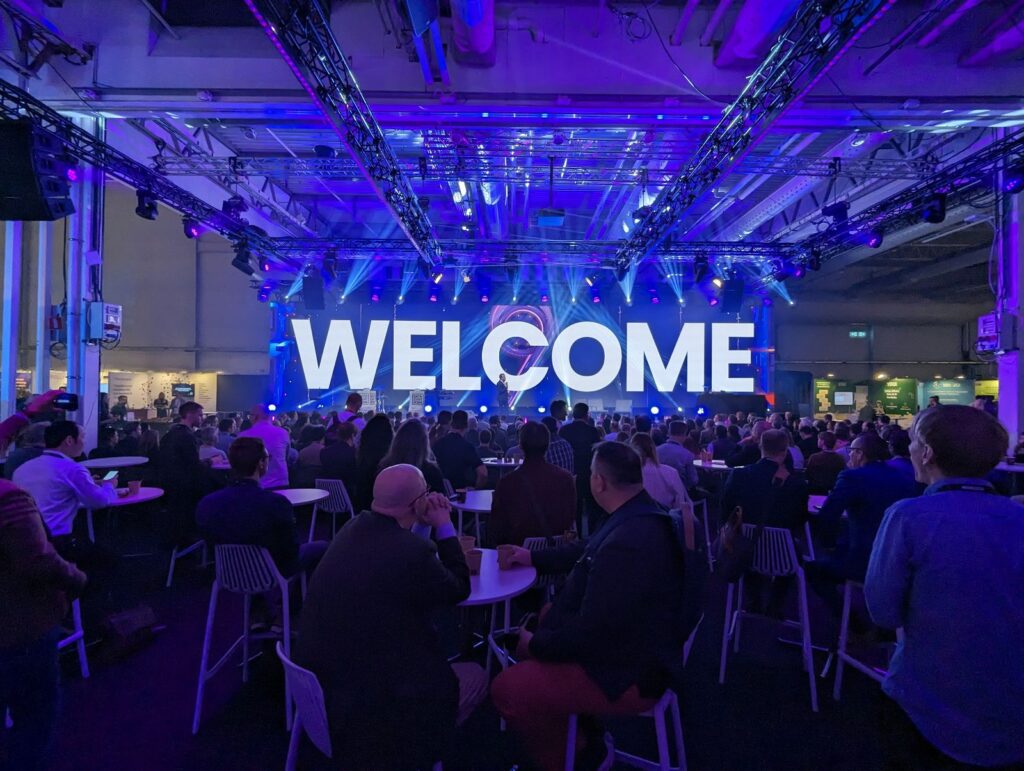

Data Innovation Summit 2024 Discussions: Stage by Stage
P1. Keynotes & Opening and Closing Stage
Kicking off the summit, Henrik Göthberg from Dairdux explored how shadow data disrupts the data value chain. The stage was then set for a discussion with Carl-Henric Svanberg and Kye Andersson, on the future outlook on data, analytics, and AI. Oskar Stål from Spotify, then shared a story of personalization and GenAI at Spotify.
Next, Dr. Jennifer Belissent from Snowflake, spoke about the role of responsible AI and robust data foundation by emphasizing security, diversity, and literacy. In addition, the AIAW Podcast Fireside chat with Cassie Kozyrkov and Henrik Göthberg, ignited curiosity among attendees by exploring AI product development and deployment strategies!


M1. Machine Learning & Generative AI
Dr. Kjell Carlsson from Domino Data Lab, challenged attendees’ perceptions speaking on Generative AI. Introducing RuterGPT, Jawad Saleemi from Ruter, spoke on a transport model based on open-source LLM. Afterwards, Thomas Capelle from Weights and Biases, shared insights on maximizing performance from LLMs. Johan Hofmans from Galapagos, demonstrated how LLMs accelerate data exploration in drug discovery. Binwei Yang from Walmart Global Tech, showcased multimodal few-shot image classification with natural language supervision to enhance accuracy.
Nowadays, RAG is a hot topic among data and AI practitioners – Mattias Aspelund and Julia Falk from Accenture, took the stage to explore retrieval-augmented generation (RAG) beyond chatbots. More on Accenture’s AI initiatives they cover in a Hyperight Data Talks interview. Afterwards, Sara Hajian from Trustpilot, spoke on maximizing ROI in AI and ML initiatives.
Formerly from Hugging Face and now from Snowflake, Rajiv Shah presented on evaluation techniques for LLMs. Following his talk, Sanchit Juneja from Booking.com, took the stage to discuss LLMOps and FMOps and the operational aspects of managing LLMs, along with best practices for deploying these models at scale.
M2. Data Engineering & DataOps
Setting the tone for this stage, Albin Blum from Theodora Tech, delivered the opening remarks. Giuseppe Mura from Software AG, tackled data integration and building a foundation for scalable AI, providing a roadmap for moving beyond traditional data integration approaches. Following this talk, Inna Weiner from Google, took the stage to discuss data governance in driving innovation with generative AI technologies.
Naveen Jose and Paul Zubin Thomas from Scania, spoke on how Dremio’s federation layer powers Scania’s datamesh. Paolo Platter from Agile Lab, Kjetil Eritzland from Capgemini, and John Thomas from Volvo Cars, spoke on data governance and quality through data contracts in large enterprises.
Later, Max Schultze from HelloFresh, shared insights on trustworthy data through automatable data contracts, highlighting the importance of transparency and reliability in data-driven initiatives. Following Max’s talk, Patrik Liu Tran from Validio, and David Feldell from Dema.ai, unveiled Dema.AI for reliability of data products with Validio’s data trust platform. They presented the potential of Dema.AI and Validio’s data trust platform in enhancing data product reliability.
How does EasyPark’s global data platform drive data efficiency? Erkki Pärna, along with Terje Russka from EasyPark, showcased not only EasyPark’s data platform but also the impact of a robust data platform on optimizing operations. Ashley Gough from The Walt Disney Company, explored scalability and reliability in modern data pipelines. Following her talk, Lars Albertsson from Scling, advocated for metaprogramming, covering limitations of traditional schema-on-read approaches.
M3. Modern Data Platform
Lennart Hedlund from Svenska Handelsbanken, moderated this stage. First, Emma McGrattan and Jennifer Jackson from Actian, touched upon data readiness for generative AI. Following this, Sebastian Herold from Zalando SE, explored how NOT to build data products, guiding attendees through common pitfalls to avoid when building data products. Moreover, in an interview, he emphasizes treating data as a product. Ted Orme from Qlik, presented on data fabric for modern architectures, and enabling integration and data accessibility.
Following his talk, Tim Hoogenboom, and Sunil Kaklij from Vattenfall, shared their journey from data to data mesh and marketplace at Vattenfall. They provided a glimpse into Vattenfall’s journey towards adopting data mesh and marketplace principles. Then, Dominik Schneider from Merck KGaA, spoke on UPTIMIZE: building an enterprise-scale data & analytics ecosystem for Merck. Dominik provided an overview of Merck’s journey in establishing a robust data and analytics ecosystem.
Tom Dejonghe from Collibra, introduced Collibra’s data Intelligence platform, showcasing how enterprises can elevate their data intelligence with the platform and its impact on data management and governance. Katarina Gyulai from Spotify, spoke on integrating a collaborative process with business stakeholders, emphasizing the importance of alignment and communication for success.
The data black hole – more on risk mitigation in data management and data loss prevention, spoke Sun Maria Lehmann from Equinor. Right after, Ben Clinch from BT Group, spoke on data fabric for automated data management at scale. Ben provided attendees with guidance on implementing a data fabric framework to streamline data management processes.
M4. Modern Data Strategy
Moderator of this stage was Iiris Lahti from Saidot. First, Michael Moulsdale from Alation, emphasized the importance of ensuring trust and transparency in AI initiatives. Michael empowered organizations to make informed decisions in their AI-driven solutions. Next, Michael Bendixen from The Lego Group, provided a glimpse into data governance at the LEGO Group. He shared the company’s journey in establishing robust data governance and best practices for strengthening data governance frameworks.
Following Michael’s talk, Håkan Löfqvist from Neo4j, spoke on building your next GenAI breakthrough. Håkan spoke on next-generation AI technologies and strategies for fully harnessing the power of AI. Alexander Grima from GKN Aerospace Engines, spoke on bridging the gap between code and commerce. David Dadoun from BRP, explored data federation in GenAI, tackling federated data architectures in generative AI, and how to leverage federated data for organization agility.
Next, Beat Bannwart from Datavault Builder, discussed data teams collaboration and data warehouse development with the Git Advantage. Beat spoke on the benefits of leveraging Git for data warehouse development, and how organizations can increase efficiency in their data projects. Olav Lognvik from DNB Bank ASA, spoke on DNB: banking on distributed, self-served, and automated data. Olav discussed DNB Bank’s data management approach, focusing on distributed, self-served, and automated data solutions driving operational excellence in banking.
Robert Børlum-Bach from TV 2 Danmark, spoke on (re)introducing the data citizen to a decentralized world, empowering individuals and teams to become stewards of data-driven decision-making. Lastly, Kiomi Soledad Spriestersbach from Lufthansa Group, spoke about Lufthansa Group’s journey in data quality and governance.
M5. Business & Data Analytics
Shaun McGirr from DevOn Software Services, moderated this stage. First, Martí Colominas from reMarkable, spoke on enabling better thinking through data by exploring the power of data in decision-making. Next, Ibrahim Elawadi from Philips, dived into numbers and how to become a better analyst. Ibrahim discussed essential skills for excelling in data analysis and going beyond the surface.
Next, Ted Sfikas from Amplitude, discussed new customer data strategy, covering customer data management and adopting a customer-centric approach. Björn Olausson from Reitan Convenience AB, shared insights on optimizing physical stores like e-commerce, and leveraging data to enhance the performance of physical retail stores. Then, Mina Boström Nakicenovic from Flightradar24, took attendees on a journey through the blue skies of aviation data, exploring how aviation data can be harnessed to drive insights in the aviation industry.
Next, Drew Banin from dbtLabs, spoke on setting the right foundation for innovation, emphasizing the importance of data infrastructure and analytics. Moreover, in an interview with Ernesto Ongaro, we talk about semantic layers and their strategic advantage in LLMs. Following Drew’s talk, Carolina Steinmetz Singer from Tibber, and Alyssa Murre from ThoughtSpot, presented on world-changer in action. They took a look at Tibber’s data and analytics initiatives, powered by ThoughtSpot’s technology.
Federico Raimondi Cominesi from Ferrero, tackled data-informed media strategy, leveraging data to inform media strategy, and ways for harnessing data analytics for targeted marketing campaigns. Lastly, Per Jernström and Henri Suonto from VR Group, spoke on optimizing large scale traffic schedules using full stack analytics solutions. They offered a glimpse into VR Group’s approach to transportation scheduling, showcasing how data analytics impacts operational efficiency.
M6. Data Science & AI Strategy
Dácil Hernández from Stena, moderated this stage. Christopher Royles, from Cloudera, spoke on rapid changes in data management and utilization and how organizations can stay competitive. Next, Søren Vedel from A. P. Moller – Maersk, discussed data science for logistics visibility and how data-driven insights can optimize supply chain operations.
Following Søren’s talk, Anoop Sharma from at LTIMindtree, shared insights on how enterprises should prepare for the future of AI & generative AI. Anoop provided a roadmap for preparing for the AI-driven future and harnessing the power of generative AI. Valdas Maksimavicius and Vigin George from If Insurance, spoke on technical foundations for distributed data & AI teams at If Insurance. They tackled technical foundations required to support data and AI teams, showcasing how organizations can build scalable infrastructures.
Then, Georgios Gkekas and Dr. Sergei Savin from Vent.io GmbH, explored streamlining ML models in production. They shared strategies for transitioning ML models from development to production, emphasizing the importance of streamlining processes in deployed models. In an interview with Georgios, he leads the company’s technological strategy and the establishment of a full-stack engineering department. Next, Kristin Hornæs from PwC Norway, covered maximizing business impact through AI transformation, and how organizations can leverage AI to drive business outcomes.
Following Kristin’s talk, Barton Friedland from Thoughtworks, and Mikko Rekola from Bolt Works, presented on deploying AI solutions in a sustainable fashion. They provided an approach to deploying AI solutions responsibly, balancing safety, ethics, and sustainability. Peter Vester from Novo Nordisk explored the potential of generative AI at Novo Nordisk. Peter covered generative AI in the pharmaceutical industry and how Novo Nordisk is leveraging this technology to accelerate drug discovery.
M7. Industrial Analytics & AI
Somil Gupta from Algorithmic Scale, moderated this stage. Patrick Couch from HPE, explored virtual worlds in industrial settings with Nvidia Omniverse and how they enhance industrial operations. Next, Federica Comuni from Saab, presented an on-premises platform with GenAI capabilities for the defense industry. Federica tackled challenges and opportunities in the industry, and how Saab is leveraging GenAI capabilities to build a high-security platform that meets the requirements of the defense sector.
Following Federica’s talk, Santiago Ballestero from Stratio BD, spoke on productivity and AI’s potential through a business data layer. He touched upon leveraging AI to drive productivity and establish a robust business data layer. Antti Kajala from WiseDigi Oy, shared his perspective and insights on the way towards a successful data initiatives.
Later throughout the day, Anastasiia Glebova from Konecranes, provided an overview of process mining for driving operational excellence in business. Next, Roger Magnusson from SoftServe, and Tua Asplund Hyllienmark from NVIDIA – Omniverse, spoke on leveraging Gen AI for optimized maintenance operations. They dived into how SoftServe and NVIDIA – Omniverse leverage AI technologies to drive efficiency in maintenance.
Following their talk, Olof Steinert from Scania CV AB, spoke on transport and predictive maintenance, and how Scania leverages data analytics in the transportation industry. Rasmus Tammia from Boliden, introduced Boliden Edge Lab and overview of its approach to integrating AI technologies and driving efficiency in the mining sector. Next, Muhammad Irfan Ali from Posti Group Oyj, presented on parcels delivery in Finland using neural networks. He spoke on AI in logistics and how Posti Group Oyj harnesses neural networks to optimize parcel delivery operations in Finland.
M8. Applied Innovation & Responsible AI Innovation
Moderating this stage was Giovanni Leoni from Credo AI. Greg Hanson from Informatica, unleashed the power of Gen AI to deliver productivity gains, improved decision-making, and automation. Next, Irina Mirkina from UNICEF, shed light on auditing AI and their importance for fairness, accountability, and transparency. Following Irina’s talk, Conor Jensen from Dataiku, spoke on driving an AI-friendly culture. Fostering a culture that embraces AI and shared strategies is key to cultivating an AI-friendly business environment.
Robert Luciani from The AI Framework, showcased creative applications of generative AI in entertainment and music-video production, highlighting AI’s revolutionary impact on this industry. Olle Zachrison from Swedish Radio, spoke on leveraging generative AI for enhancing the quality of news content. He showcased Swedish Radio’s approach to delivering reliable information. Andrea Gioia from Quantyca SpA, along with Jacopo Aliprandi from Blindata srl, discussed data product catalogs, contracts, and knowledge graphs. They outlined how organizations can streamline data management using these tools. In an interview, Andrea speaks more in-depth on data product catalogs.
Following their talk, Petra Karmteg from DNB Sweden, discussed the importance of AI readiness for achieving business excellence, sharing strategies for preparing operations, infrastructure, and workforce for effective AI integration. The panel consisted of Ioan-Dragoș Tudorache from the European Parliament, Alex Moltzau from NORA, Cristina Andersson from Develor Productions Oy, Carolina Brånby from Svenskt Näringsliv, and Anne Bøgh Fangel from Omilon A/S. They talked about the European AI Act and its implications. Panelists spoke on legislative processes, provided insights into policy implications, offered strategies to navigate compliance, outlined legal obligations, and discussed the act’s potential impact on UX design.
M9. Databases & Data Quality
Leading the stage was Stefan Wendin from You Don’t Know What You Know (YDKWYK). Valentijn Valstar and Niels Raas from Vopak, presented on how Vopak navigates complex storage standards with data quality. They shared Vopak’s approach to managing storage standards with quality. Next, Adarsh Mahesan Shyna and Yatin Mittal from Nordea Bank, discussed data security, data masking, and row-level access control in modern data governance. They focused on implementing data masking and row-level access control to safeguard sensitive information.
Then, Bart Koek from Immuta presented on fine-grained data security for enhanced internal data sharing. Innovative methods enable organizations to maximize data assets and maintain strong security. Anita Owens and Adam Jacobs from Instabee, shared insights on creating a culture of shared ownership. They emphasized the importance of creating an environment of shared ownership to resolve issues quickly.
Teresa Wu from JP Morgan Chase, discussed the impact of AI and GPT technologies on frontend engineering, highlighting their role in improving user experiences. In an interview, Teresa talks more in-depth on this topic. Next, Marc Linster from EnterpriseDB, presented new frontiers for Postgres. Marc spoke on database management and latest advancements in Postgres driving its widespread adoption.
Martina Ivaničová from Kiwi.com, shared data management strategies to prevent issues before they occur. High-quality data streamlines processes and maximizes data asset value. John Thomas from Volvo Cars, discussed data governance in data mesh, showcasing Volvo Cars’ decentralized data management approach. Embracing data mesh principles enhances governance and enables autonomous operation within organizations.
Part 1 Wrap-Up: A Day Filled with Insights!
What a fantastic first day at the Data Innovation Summit filled with endless energy! It’s incredible to see this event going strong for its ninth year, and it’s clear why.
Today was all about making connections, sharing knowledge, and walking away with some valuable experiences. The energy in the room was electric!
This is just the beginning, and we can’t wait to see what amazing things day two brings!

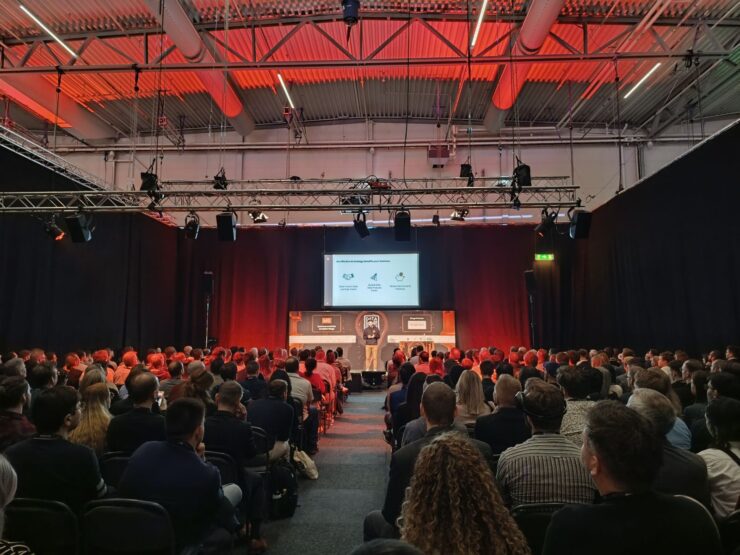
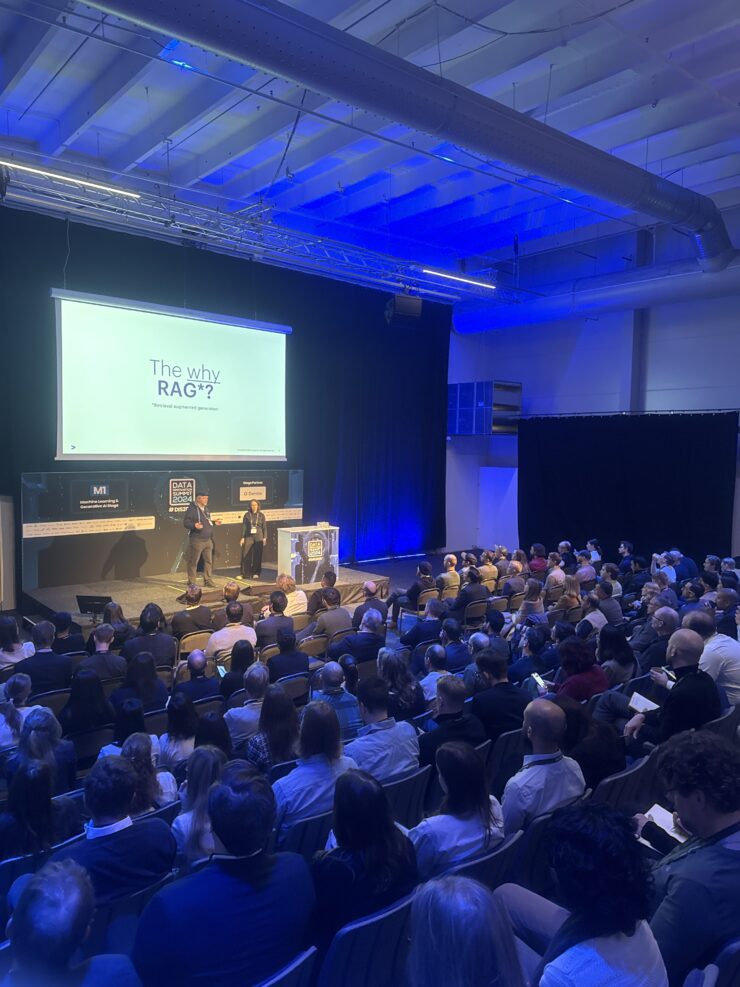
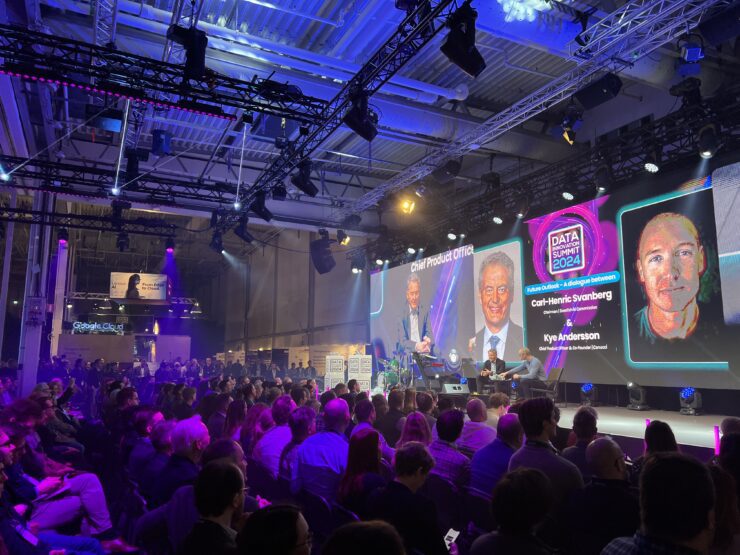
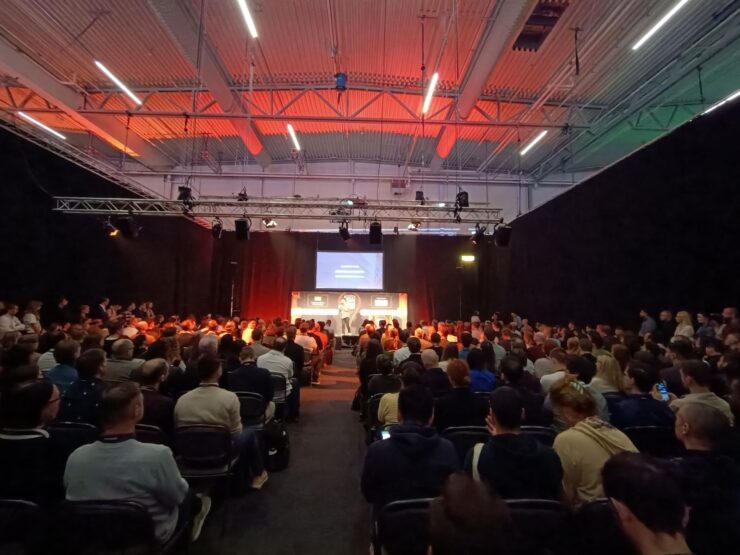
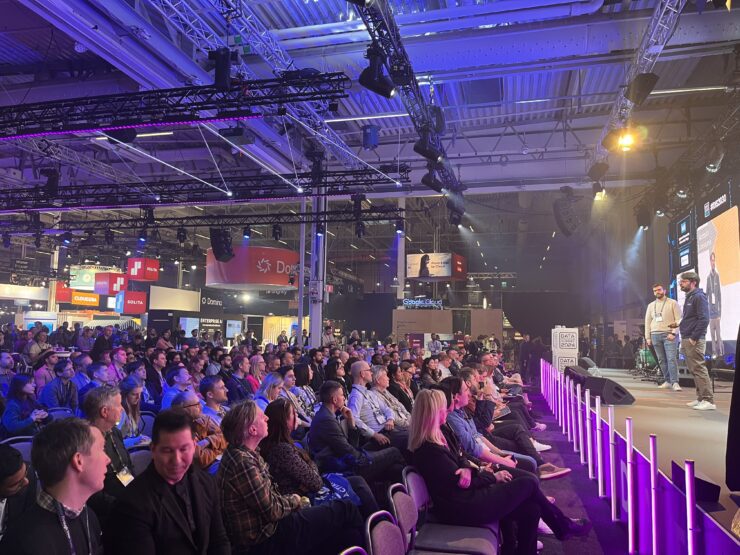
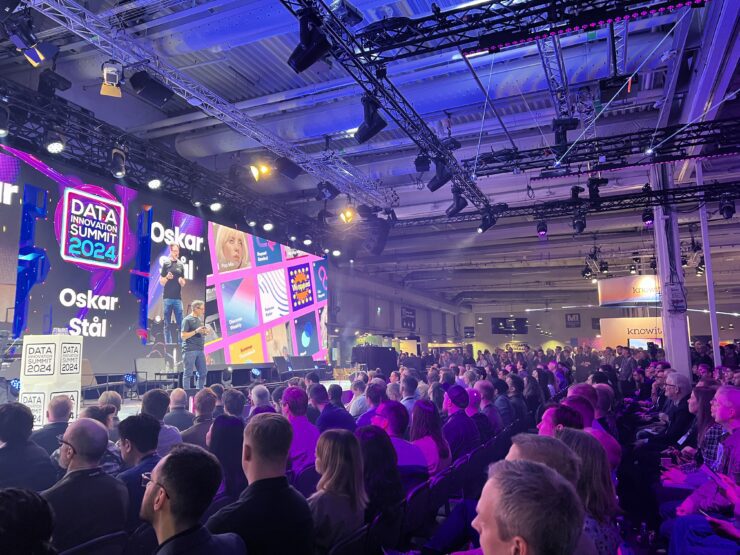
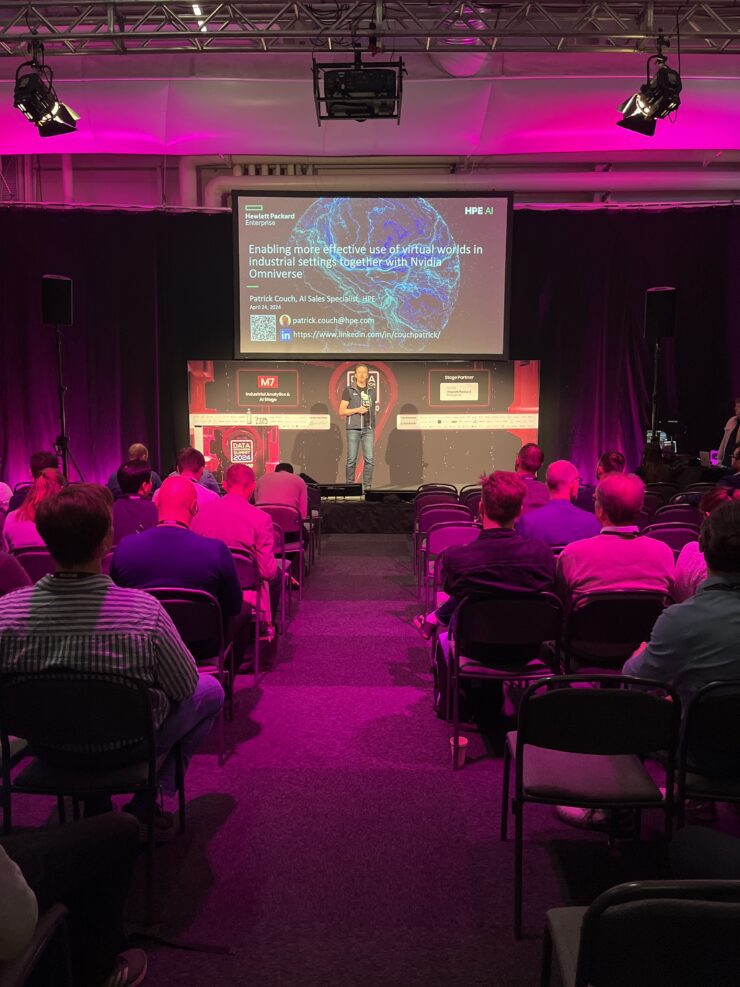
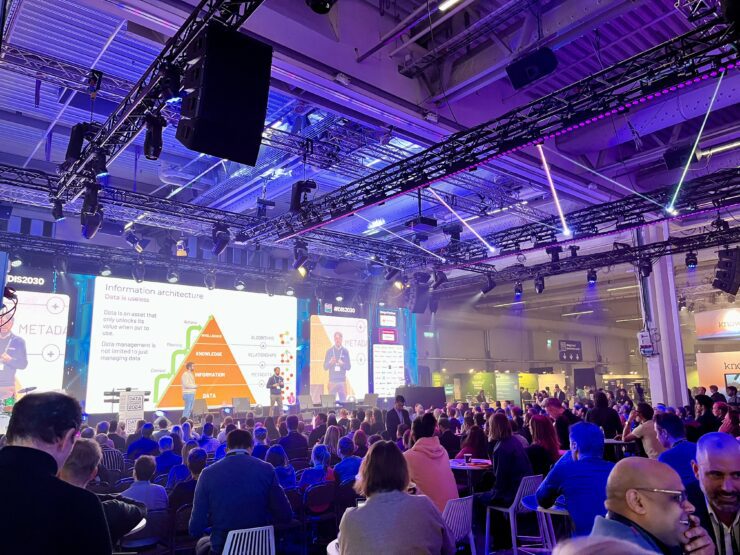
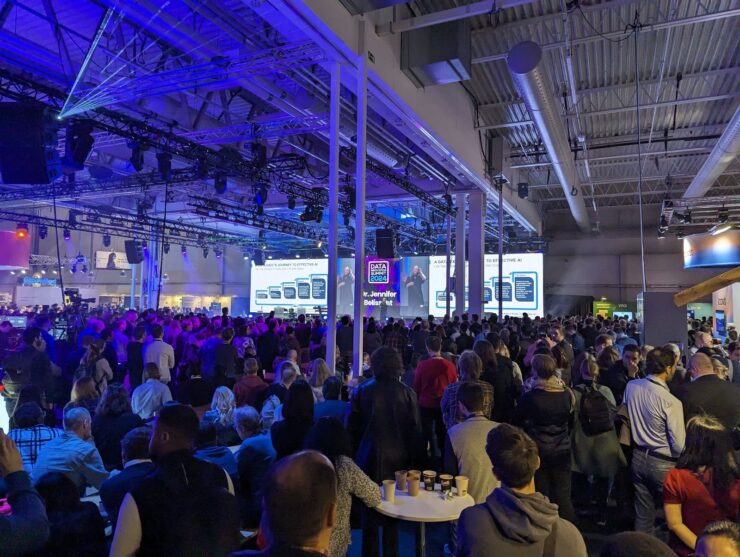
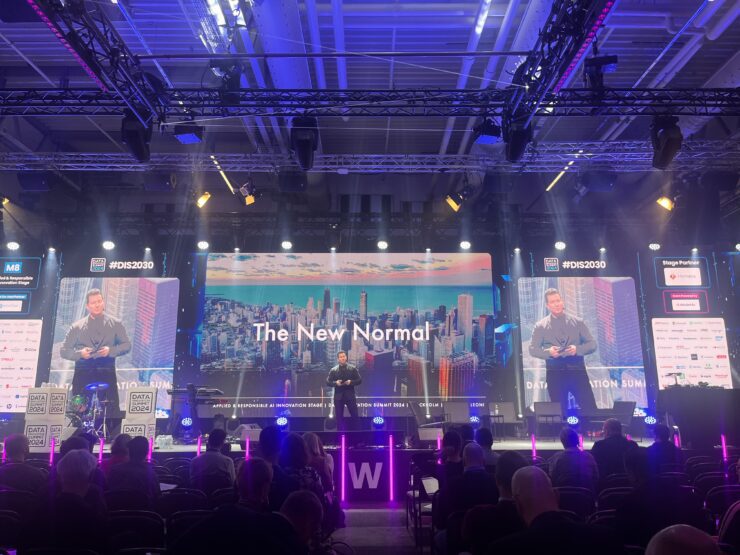
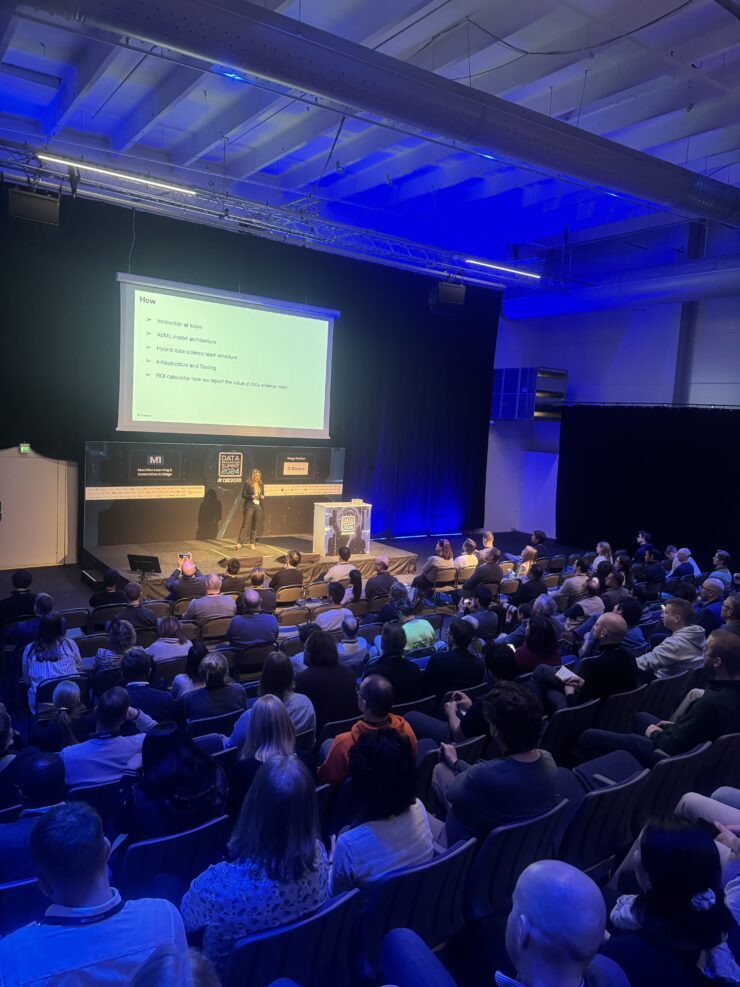
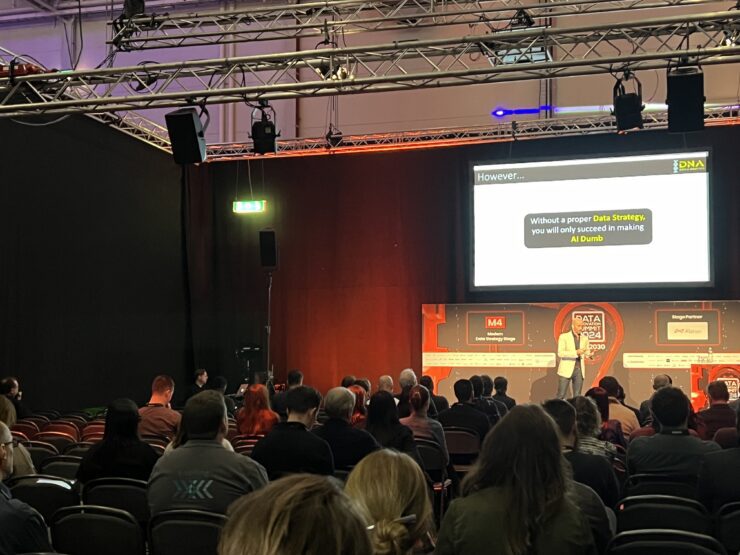
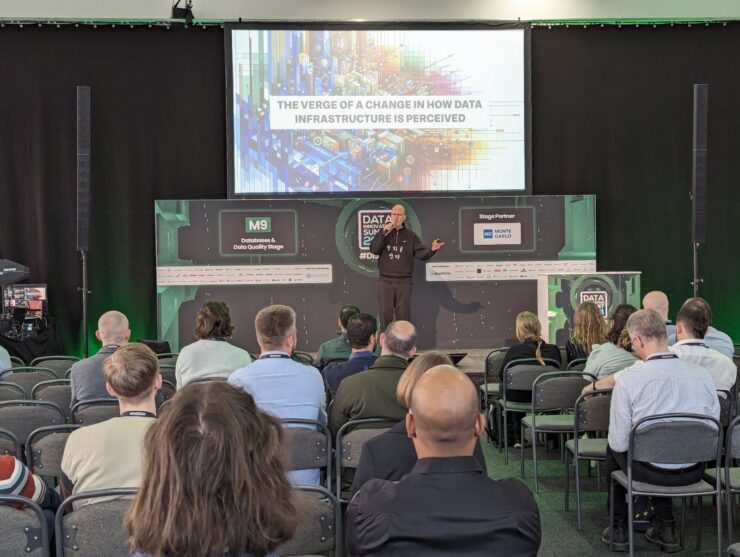
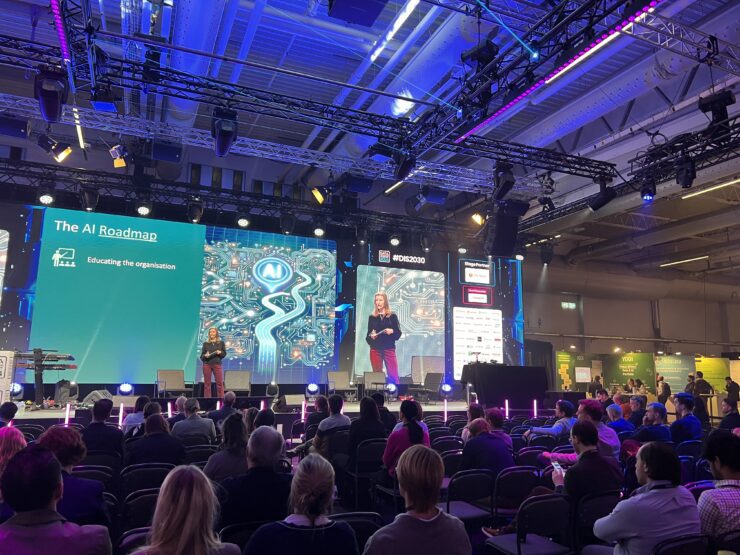
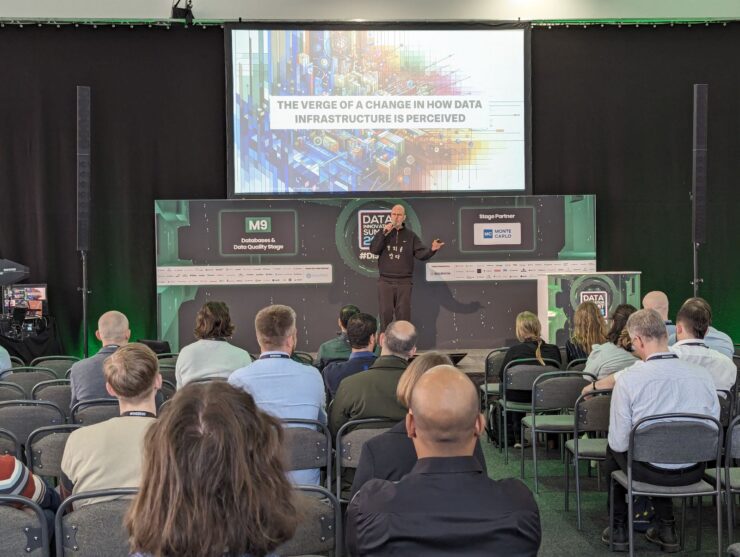
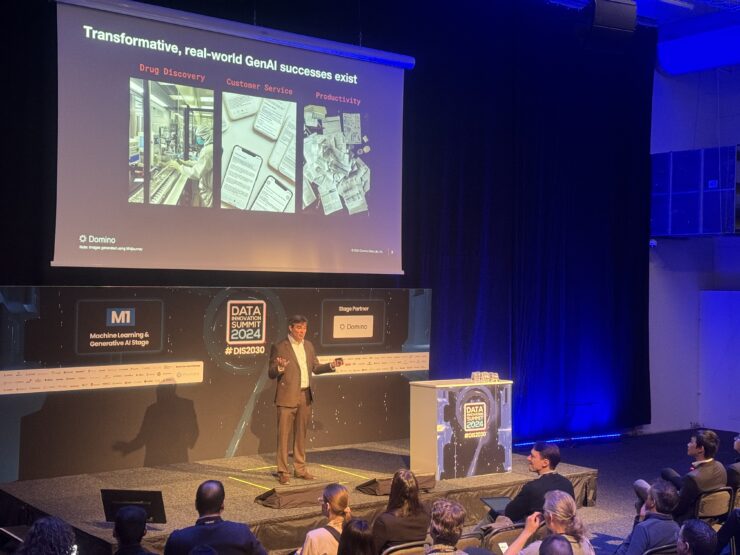
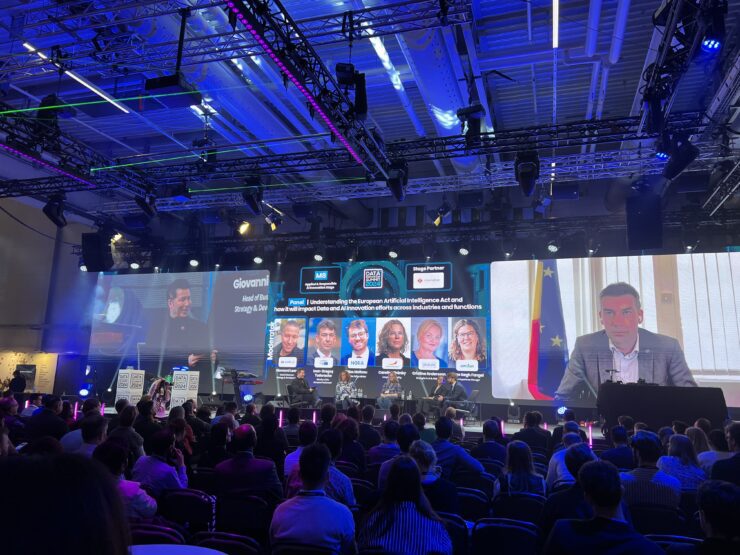
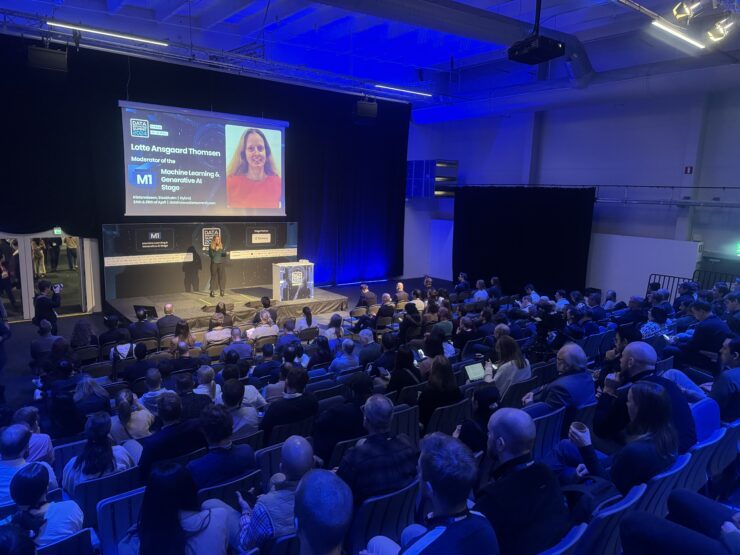
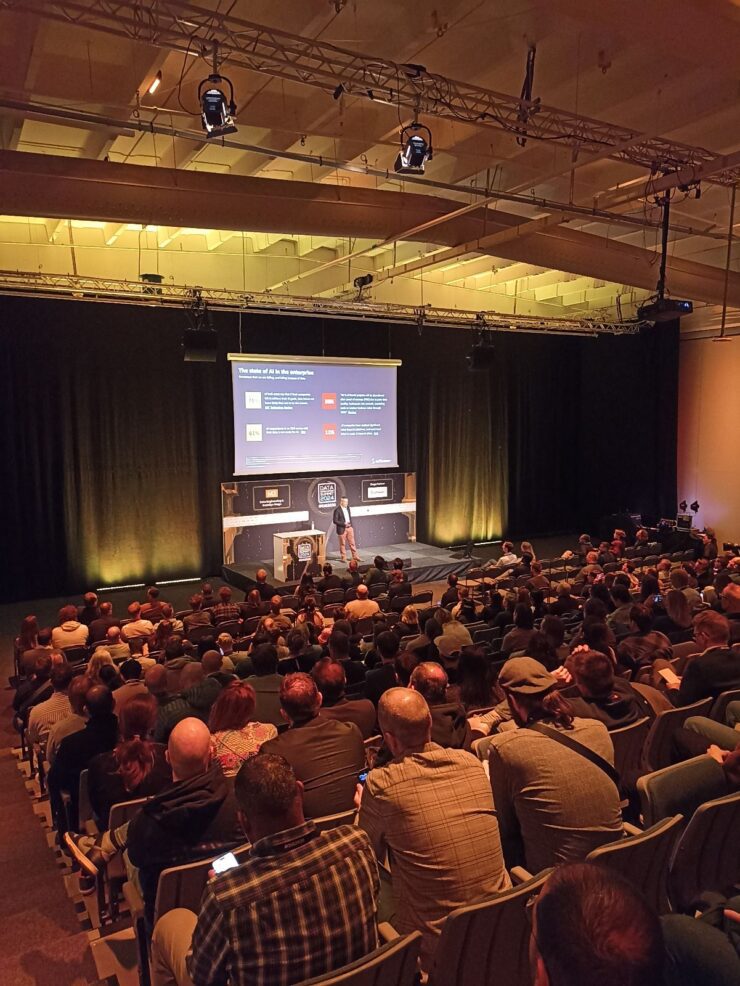
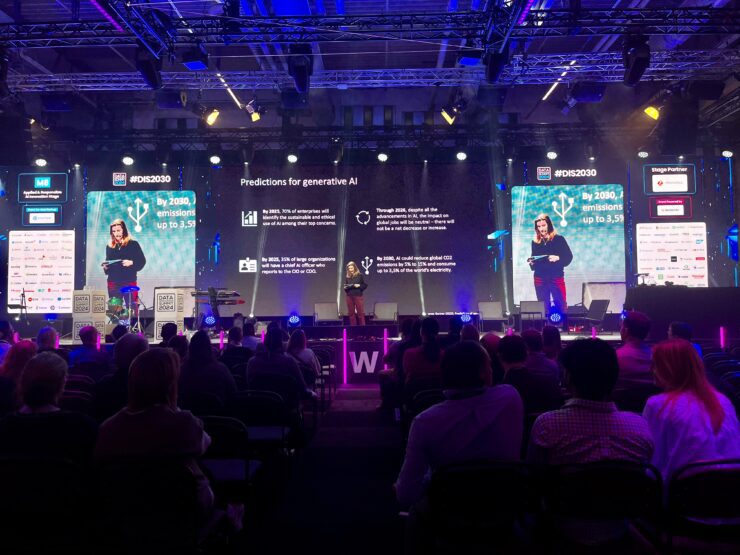
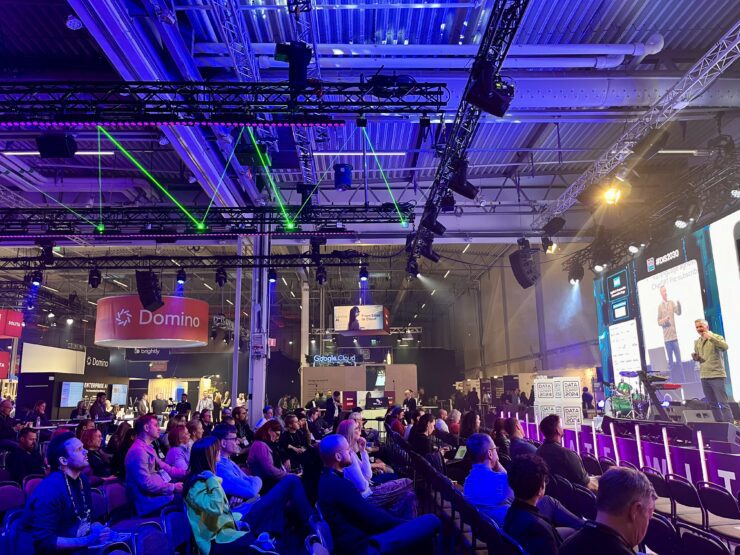
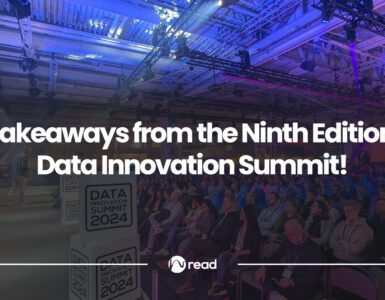

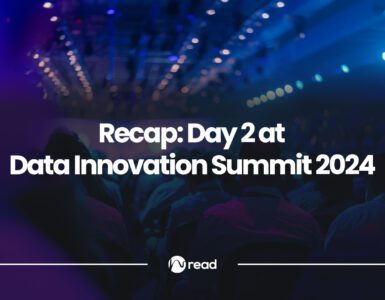











Add comment